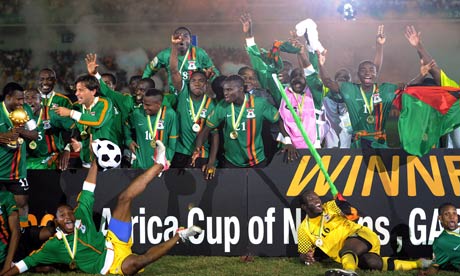I am going to reproduce an article in full here, because it is well worth a read.
Zambia has a very active, very involved community of people who now live and work outside its borders: Zambians who through study, family or any other reason have moved to another country. Their ties to Zambia are strong and the story below illustrates exactly this. A great project.
Well after midnight one night in 2006, Mwizenge S. Tembo was walking through his family's village of Nkhanga in eastern Zambia when he noticed the darkness was broken by a single light coming from his nephew's hut.
Curious, Mr. Tembo, who is a professor of sociology at Virginia's Bridgewater College, asked the boy the next morning what had kept him up so late. "Reading," he said. But when Mr. Tembo asked what book, his nephew shook his head. He didn't have any books, he explained. His reading material was the stack of notes he had taken that day in school.
"I thought, Oh man, that is really bad," Mr. Tembo later recalled. The encounter with his nephew reminded him of his childhood in the same village in the 1950s and 60s, when the closest he came to books were the beat-up textbooks he and his classmates read aloud in school because there weren't enough of them to go around. He didn't have a wide supply of reading material until he went to college, first at the University of Zambia and then at Michigan State University, where he earned his Ph.D. in 1987. And although much had changed for his hometown in Zambia in the decades since, the lack of reading material remained constant. The closest library to Nkhanga was more than 120 miles away.
In a country where the adult literacy rate was over 70 percent, Mr. Tembo thought that was unacceptable. So he gathered the village's leaders together and began to devise a plan to build a library. And when he returned to Bridgewater, Va. (population 5,200), he marshaled another set of chiefs—professors, church leaders, and students—to raise the money and collect the books the library would need.
From there, the plan lurched forward in fits and starts. In 2007, a local middle school held a book drive that netted 800 books. But shipping them to Zambia drained the project's coffers, and when the books continued to flood in—including a collection of more than 100 works of English literature donated by a retiring Bridgewater College professor—they were shunted into storage in Mr. Tembo's basement. The teetering stacks stayed there until last October, when another Zambian expat heard about the project and volunteered to pay to send the books to Zambia—from her house in New Jersey. A group of Bridgewater residents scrambled to set up a caravan of cars to drive the 3,000 books there.
And then there was the matter of the rain. Each year in Zambia between November and April daily downpours made construction nearly impossible. So the building rose piecemeal—a foundation in 2007, walls in 2008, a roof in 2009.
But Mr. Tembo, who teaches courses on African culture at Bridgewater, says that despite the slow-going construction, he never had trouble drumming up interest in the project among his colleagues and students. "When he talked about this library, his passion for it lit mine," says Larry C. Taylor, an assistant professor of music at Bridgewater who organized a fund-raising concert at his church.
The library has never had a single large donor, Mr. Tembo says. Instead he strung together donations of $20 or $50 until he had enough to wire a few hundred dollars to Zambia for the next phase of construction.
In the village itself, the project met with more skepticism. One woman asked Mr. Tembo if she would have to pay to read the library's books. When he said no—that you borrow and read the books and then return them—she initially didn't believe him. "It seems so obvious to us," Mr. Tembo says. "But it's not if you live somewhere where libraries are just a rumor."
Five years and $45,000 after it began, Mr. Tembo's library is approaching completion. The 3,100-square-foot brick building has taken its place at the center of the village, with nearly 4,000 books shipped from the United States waiting in battered boxes to fill its shelves—when it gets shelves. And then there is the matter of a staff. That library 120 miles away has to send a librarian to do the cataloging and teach local volunteers how to take care of the facility. But by making it a volunteer operation, Mr. Tembo says he hopes to stress that the library belongs to the people who visit it.
"The idea was not to build a monument, but something the community will use," he says.



















